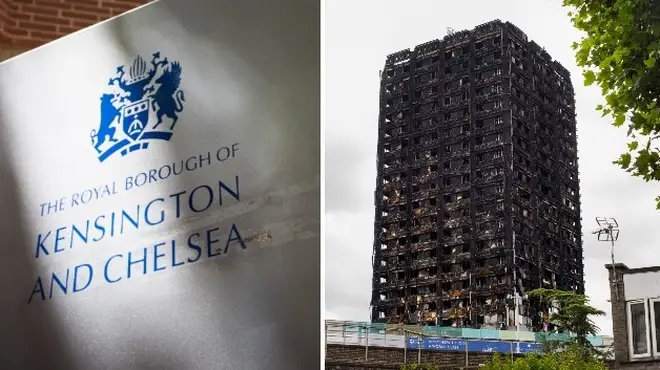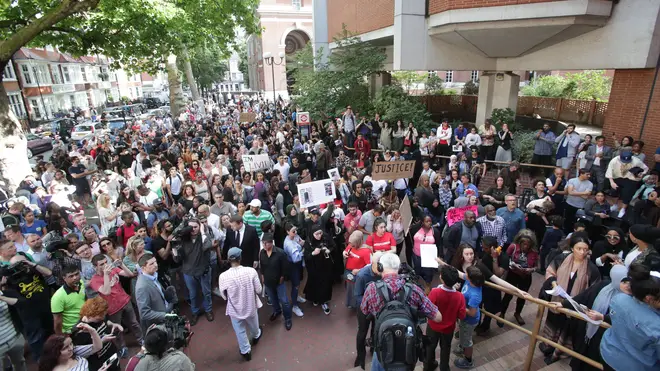
Vanessa Feltz 3pm - 6pm
19 May 2021, 18:45

The former leader of Kensington and Chelsea council who resigned weeks after the Grenfell Tower tragedy has told the inquiry into the blaze he is "desperately sorry" for everyone involved.
Nicholas Paget-Brown said he believes a "systemic failure" had occurred and that such a tragedy must never be allowed to happen again.
A fire at the 24-storey Grenfell Tower block in west London in June 2017 claimed 72 lives.
He told the inquiry: "I was very proud to be leader of Kensington and Chelsea.
READ MORE: Council official 'regrets' not asking about Grenfell Tower cladding fire safety
"I am desperately sorry for everybody who was in the tower on the morning of June 14. I will never forget what I saw. It was utterly, utterly terrible.
"The memorial to those who lost their lives and lost everything and have had their lives ruined, must be that the work that this inquiry is doing to find out what really happened can never happen again - and that must be the memorial to those that lost their lives.
"And I am so sorry for all of them."
The actions of the former leader and the council were called into action shortly after the blaze, sparking angry protests outside the borough's town hall.

The inquiry previously heard that Grenfell's cladding featured a polyethylene (PE) core sandwiched between aluminium composite material (ACM) panels - found to be a key factor in the fire's rapid spread by acting as a source of fuel.
On Monday former deputy council leader Rock Feilding-Mellen admitted he had failed to ask questions about the safety of the materials when officials discussed refurbishing the block in 2014.
Asked whether the tragedy was a local failure as opposed to a systemic failure, Mr Paget-Brown told the hearing that "it seems to me from what I have heard and read that this is a systemic failure, this material is in widespread use everywhere".
READ MORE: Former Grenfell Tower resident who raised safety concerns gives evidence
He said he is now "very nervous" about high-rise buildings and suggested a shift is needed in how they are run, as well as a reflection of their impact on residents who can find themselves feeling isolated.
Mr Paget-Brown previously told the inquiry panel that he recalled that Grenfell Tower had "quite a grim entrance", no outside balconies, and "wasn't a good piece of public realm".
He spoke of things in hindsight that could have been done differently during his time as deputy leader and leader of the council, admitted there were actions he has thought "an awful lot" about since 2017.

Over a quarter of Cladding Safety Certificates 'invalid'
The former leader added: "I think I would be very nervous now of high-rise developments in general and refurbishments in particular. There are clearly a number of issues which are difficult or potentially difficult.
"I think high-rise buildings anyway, quite apart from the architecture, the design, the refurbishment, are not always the happiest places to live - you can be very lonely, very isolated, and there all sorts of issues when you do live in a high-rise flat.
"I do not think necessarily they are the way forward for the future."
He now favours the idea of mansion blocks which do exist in a large part of Kensington and Chelsea as "a better model for future housing".
Mr Paget-Brown would also "think hard" about the phrase "arm's length management organisation" as it "is quite vague and open to different interpretations".
He said: "It seems to me to be the happy idea in the 1990s that you might devolve power hasn't really meant that.
"It really has meant that councils should be running housing directly and maybe that is something else that needed to change."
Lawyers for victims and their families at the inquiry have previously attacked the role of the Royal Borough of Kensington and Chelsea (RBKC), which owned the block and was the landlord of Grenfell Tower, and the Kensington and Chelsea Tenant Management Organisation (TMO), an arm's-length body which ran it and oversaw the refurbishment.